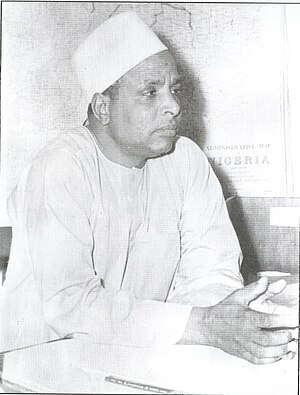Discover Your Roots
SIGN UPDiscover Your Roots
SIGN UPMusa is a male name of Arabic origin, meaning "Saved From The Water." This name carries historical significance and is associated with various places, people, and fictional characters. Musa is also linked to acronyms and other diverse uses, such as the name of a river in Lithuania and Latvia, a village in Azerbaijan, a mountain peak in Turkey, and an island in the Persian Gulf. In addition, Musa is connected to notable individuals like Mansa Musa, the hereditary ruler of the Mali Empire, and Musa of Parthia, the queen of the Parthian Empire. Furthermore, the name Musa is associated with fictional characters in literature and entertainment. Additionally, it is linked to acronyms, an Italian bagpipe, a South Korean epic film, an Italian car, and even an asteroid.

Musa Daggash, OFR, was a prominent Nigerian civil servant who made significant contributions to various ministries and public institutions. Born in about 1918 in Borno State, Nigeria, he received his education at prestigious institutions such as Katsina Higher College and the Samaru Agricultural School, where he was among the first set of forestry students. Daggash furthered his studies at the Imperial Forestry Institute (now the Department of Plant Sciences) at the University of Oxford, demonstrating his commitment to academic and professional development.Daggash's career in forestry began with his appointment as a Forest Assistant III, and he went on to establish a successful Forestry Department in Yola. His dedication and expertise in the field led to his promotion and recognition within the Nigerian civil service. Daggash's impactful career also extended to leadership roles in various organizations, including his appointment as the first Nigerian to chair the Board of Barclays Bank (now Union Bank of Nigeria).Throughout his life, Daggash's accomplishments and leadership roles have left a lasting legacy in Nigeria's public service and financial sector. His commitment to professional growth and service to his country have solidified his place as a respected figure in Nigerian history.

Musa Haqqar al-Safi Suliman, born on June 15, 2004, is a talented track and field athlete hailing from Sudan. At the age of nine, he relocated to Cairo, and in 2021, he arrived in Switzerland seeking refuge. Notably, Musa achieved a personal best 800 meters time of 1:48.77 in Bern on August 4, 2023. His remarkable abilities and dedication led to his selection as one of the Olympic Refugee Scholarship-holders by the Olympic Refuge Foundation (ORF) in April 2024. Subsequently, on May 2, 2024, he was announced as a member of the Olympic Refugee Team for the Paris 2024 Games. Musa's journey exemplifies resilience and determination in the face of adversity. For more information about Musa Suliman, visit his profile on World Athletics.

Musa Agha al-Hasi, an Ottoman commander of Arab irregulars in the Galilee, was born in Faiyum, Upper Egypt, and belonged to the Bedouin Hanadi tribe. During the late 18th century, he developed a close association with the Ainawiyeh tribe of the Damanhur region under the Ottoman commander Jezzar Pasha. Upon Jezzar's return to Palestine, Musa accompanied him, and was given the honorary name of 'Arab al-Hawwara. He moved to Gaza in 1811, seeking military service, and was appointed commander of the Hawwara horsemen by Suleiman Pasha al-Adil and his successor, Abdullah Pasha. Along with his co-commander, Ali Abu Zayd Agha, Musa led 400 horsemen and was known for his bravery and generosity. According to some sources, he died during Abdullah Pasha's siege of Sanur, while others claim he died in Gaza in 1830. Musa's legacy continued through his sons, with Aqil succeeding him as the Hawwara's commander. His story is a testament to his leadership and influence in the region during his lifetime.Keywords: Musa Agha al-Hasi, Ottoman commander, Arab irregulars, Galilee, Faiyum, Bedouin Hanadi tribe, Jezzar Pasha, Acre-based governor, Suleiman Pasha


All images displayed on this page are sourced from Wikipedia or Wikimedia Commons.We use these images under their respective Creative Commons or public domain licenses. Wherever applicable, author attributions and license information are provided. If you believe an image is used incorrectly or outside its license terms, please contact us so that we can review and correct the issue.